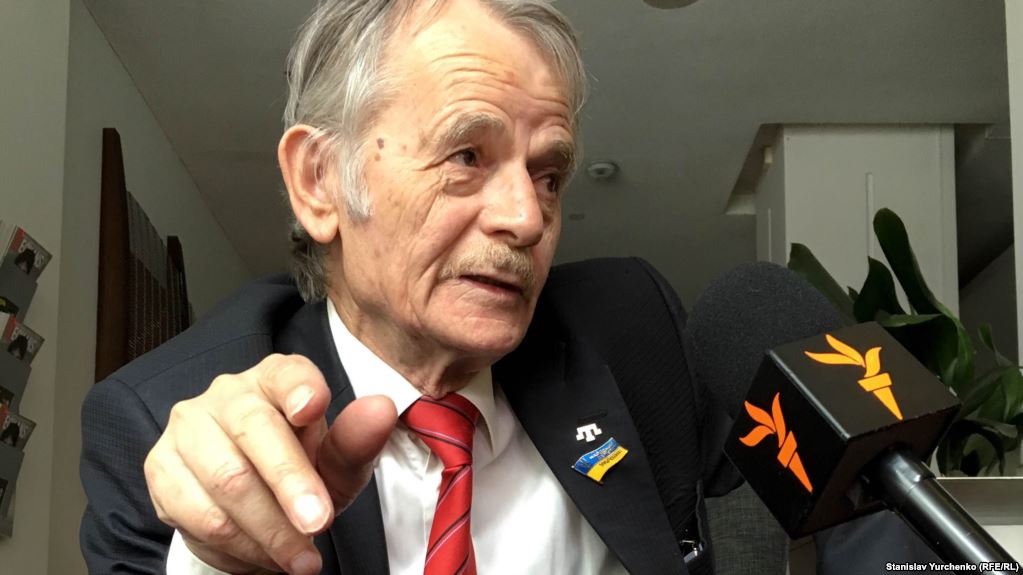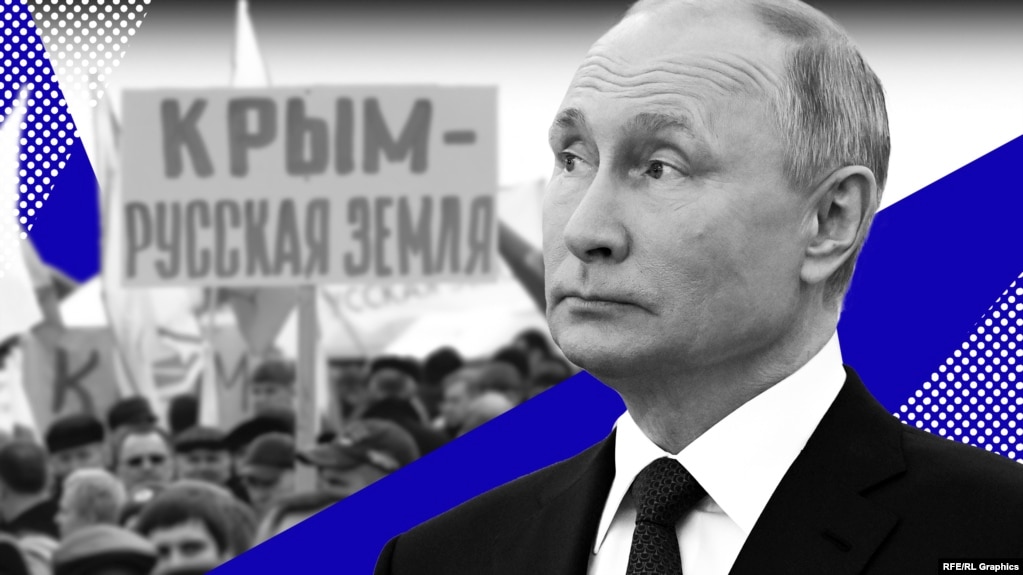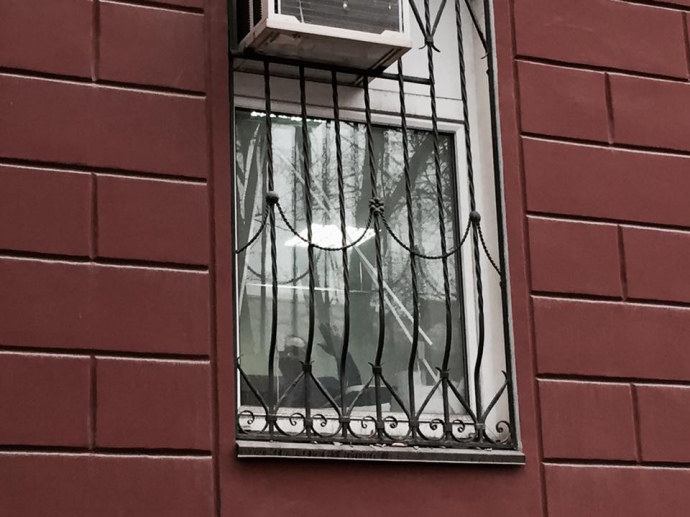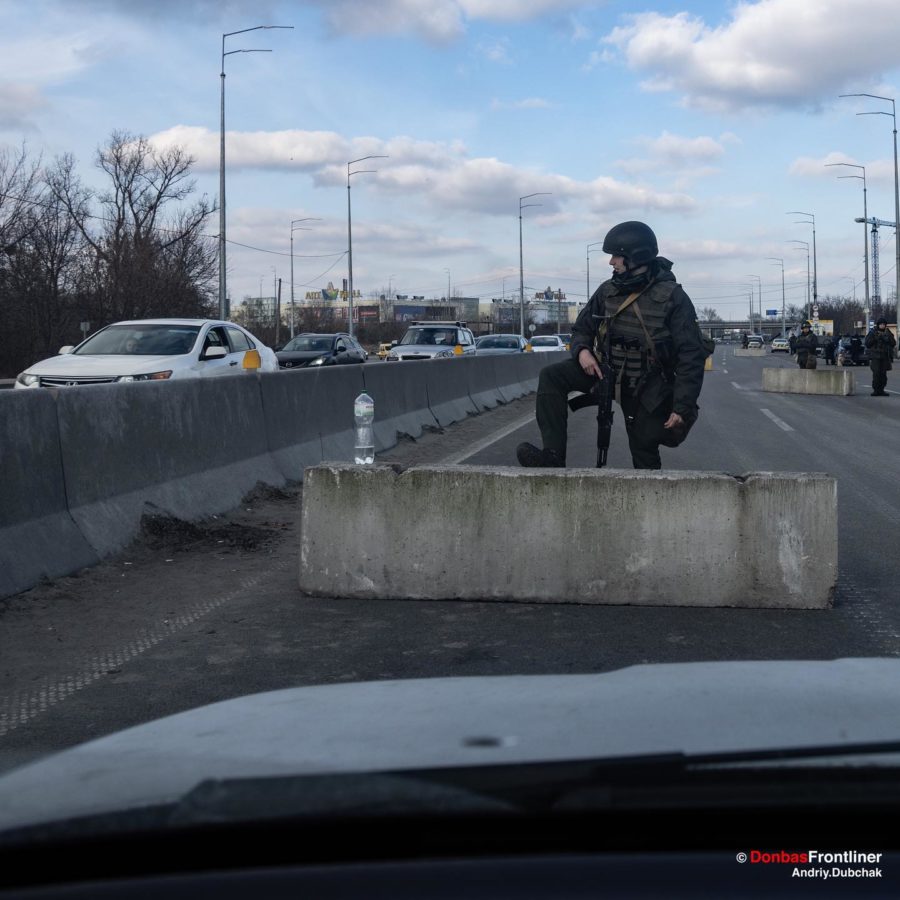Mustafa Dzhemilev, who has been fighting for the rights of the Crimean Tatar nation for six decades against occupiers old and new, turns 75 today. He has lost none of his ability to diagnose the problems his nation faces or to inspire its members and all people of good will with his pointed observations and actions.
Despite being forced to grow up far from his homeland as a result of Stalin’s deportation of the Crimean Tatars in 1944, being compelled to spend decades in prison where he still holds the record for the longest hunger strike in history – 303 days – and being exiled again by the Putin regime, Dzhemilev remains an optimist about the future.
Now at an age when many are taking their rest, Dzhemilev has lost none of his commitment, insight or energy, and perhaps the best measure of the man on this round birthday are the seven observations he made in the course of an interview given to Ramazan Alpaut of Radio Liberty’s IdelReal portal.
They include:
- First, Putin may call himself a nationalist but he is in fact a fascist, Dzhemilev says. He does not respect international law and considers it his right to invade and occupy neighboring countries and killing people. “Well,” perhaps, the Crimean Tatar leader allows, “this is a form of Russian nationalism.” But he continues, “not one enemy of Russia has been able to inflict such harm on the Russian Federation as have Putin’s policies,” policies whose errors he should admit but that would take courage and a sense of responsibility, things he doesn’t have.
- Second, Ukraine for all of its difficulties is not Russia, and not Russia in positive ways. In Ukraine, Dzhemilev says, “there exists the concept of ‘national minority’ for whom instruction in a native language until the fifth class is obligatory … in Ukraine, there is the concept of ‘indigenous people’” for whom there are even broader rights. “In Russia, this situation is completely different. In Russia open and forced Russification is taking place.”
- Third, “the Volga Tatars like the Bashkirs – although the Bashkirs and Tatars are from [Dzhemilev’s] point of view, part of one and the same people – and the peoples of the Caucasus must get themselves prepared for independence … if the current policy of Russia continues, then that country will face inevitable collapse and certainly the disintegration of this state.”
- Fourth, what the Russian occupiers are doing in Crimea is not pressure but “the most genuine terror.” The situation has become so bad, Dzhemilev says, that “this isn’t life; this is some kind of hell.”
- Fifth, there has been no mass exodus from Crimea because Dzhemilev and the other leaders of the Crimean Tatars have urged them to remain. If they left, that would give Moscow a victory it doesn’t deserve by allowing the Russian government to send in Russians to change the ethnic composition of the Ukrainian peninsula.
- Sixth, while the Mejlis of Crimean Tatars cannot formally meet because it is impossible to hold sessions in a place where a quorum could be assembled, the alternative Crimean Tatar organization that Moscow has established is a fake, wholly controlled by the FSB, just as is the case of the Crimean Muslim Spiritual Directorate.
- And seventh, “our people puts all its hope in liberation from occupation. But when this liberation will come, it is impossible to predict. Such totalitarian bandit regimes [as the one Putin has organized and heads] sometimes fall apart instantly and in a completely unexpected way.”
Further Reading:
- ‘The disappeared’ – the hidden part of Russia’s hybrid deportation of the Crimean Tatars
- Russian occupiers continue to destroy history and culture of Crimean Tatars
- Crimean Tatar activist accused of terrorism vows to continue hunger strike until Russia releases all Ukrainian political prisoners
- Putin repeating Stalin’s genocide with ‘new hybrid deportation of Crimean Tatars’
- Chronology of the annexation of Crimea
- Hacked military docs reveal how the Russian 18th motorized brigade invaded Crimea
- 74 years on, Russian genocide of Crimean Tatars continues
- Moscow forming ‘death squads’ in occupied Crimea and elsewhere, Shmulyevich says
- Hague court rules Russia must compensate Ukrainian investors $159 mn for Crimea losses
- Four years after annexation: Ukraine still connected with occupied Crimea, albeit weakly
- Little green men: the annexation of Crimea as an emblem of pro-Kremlin disinformation
- The attack on media freedom in Crimea threatens to stop coverage of rights abuses
- Crimean jailed for Ukrainian flag announces termless hunger strike
- The Crimean Tatar Palace and other historic sites Russia is destroying in occupied Crimea
- Military base instead of a resort: Crimea four years after the occupation
- We must protect Crimea’s human rights defenders
- UK journalist who wrote about Crimean Tatar political prisoners fined, expelled from Crimea






